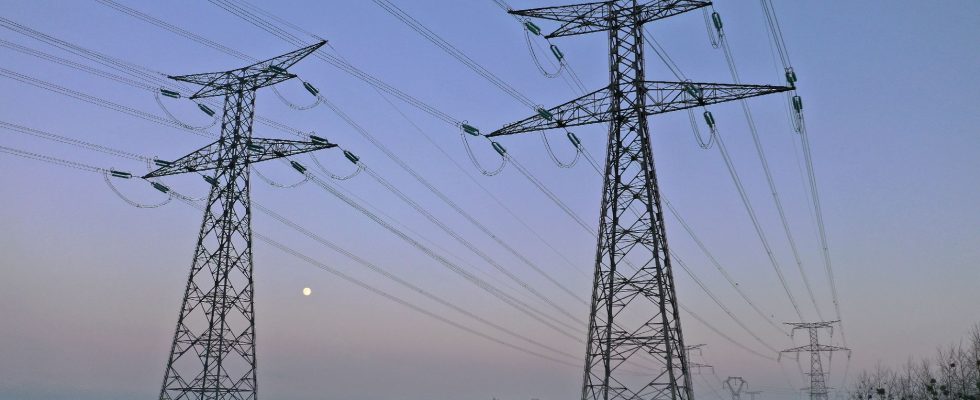The Twenty-Seven found, this Tuesday, October 17, a compromise on a reform of the European electricity market, which provides for the possibility of public support for existing nuclear power plants subject to compliance with EU rules on state aid.
This agreement concluded by the Energy Ministers meeting in Luxembourg, and which will now be negotiated with MEPs, concludes months of bitter negotiations between France and Germany on support for the atom, at the heart of concerns on industrial competitiveness.
After the surge in electricity prices last year, the reform intends to reduce the bills of households and businesses thanks to long-term contracts to smooth out the impact of the volatility of gas prices.
The approved text also intends to offer greater predictability to investors by making the use of “contracts for difference” (CFD) compulsory for any public support for investments in new carbon-free electricity production facilities (renewable or nuclear).
In this state-guaranteed price mechanism, if the wholesale market price is higher than the set price, the electricity producer must pay the additional revenues earned to the State, which can redistribute them to consumers and industrialists. If the price is below, the State pays compensation.
“A balanced position”
Paris and Berlin had long disagreed on the conditions required to also use these CFDs for new investments in existing nuclear power plants, intended to extend their lifespan or increase their capacities. Germany, having left nuclear power, fears competition, which it considers unfair, from French electricity made more competitive thanks to massive public support. Conversely, the subject is crucial for France, keen to finance the repair of its aging nuclear fleet and to maintain low prices, a major asset for its manufacturers.
Finally, the States “adopted a balanced position […] For States which support investments extending the lifespan (of existing power plants), the use of CFDs will be a possible option, but will not be obligatory”, summarized European Commissioner for Energy Kadri Simson at the end Of the reunion.
But if they make this choice, “they will have to submit to European rules on state aid and the Commission will ensure that such instruments are adequately designed and do not give rise to undesirable distortions of competition and a disruption of the fairness of the conditions of competition in the internal market”, she warned. The text also proposes measures to strengthen consumer protection and provides, in the event of a new lasting surge in prices, the triggering of a crisis situation at European level allowing States to adopt measures such as price shields for the most vulnerable households and small businesses.
Another subject was debated: the “capacity mechanisms” which allow States to remunerate the unused capacities of power plants to guarantee their continued activity and avoid future electricity shortages. Several countries wanted to be exempt from the planned ecological constraints, notably Poland, wishing to apply this tool to its coal-fired power plants. Finally, the States introduced an exemption from the existing requirements concerning CO2 emission limits but under strict conditions and only until the end of 2028.
